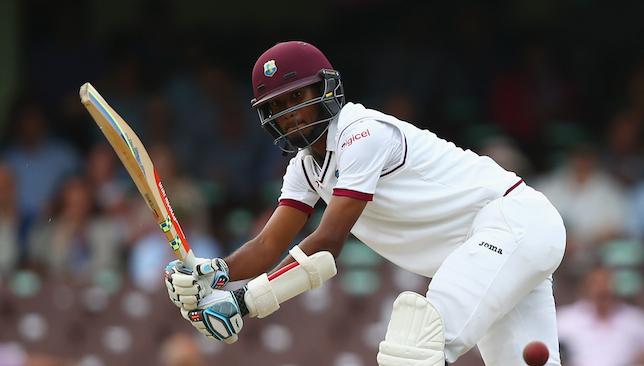
Watching West Indies cricket manage its affairs is like viewing a low budget slasher flick. It’s messy, poorly orchestrated and fails to hit the mark.
– Memon: The cricketing year in review
– STOKES: Botham ‘blown away’ by innings
– LIVE: Cricket scores around the world
That the West Indians have not been in the pink of health isn’t news, nor is the fact that its board hasn’t always kept the interest of players at the forefront.
We routinely get reminders of that and two more were offered recently. First came the revelation about the vast gap in the salaries of Test cricketers from Australia and the West Indies who are currently competing Down Under.
The Aussies get around $11,000 per Test while Caribbean cricketers get half as much. The difference is a lot more in the annual retainer of contracted players with a top Aussie getting $1million and the best West Indian getting $140,000 at the most.
West Indies skipper Jason Holder said it’s time for some sort of a resource pool which guarantees a minimum wage for Test cricketers. That world class players like Chris Gayle, Dwayne Bravo and Andre Russell are playing in the Big Bash T20 league in Australia right now makes the call more pertinent.
Test cricketers need to be paid a lot more money. Just look at West Indies opener Kieran Powell. The left-hander is in Florida to attend trials this month as he looks to catch the eye of a Major League Baseball franchise.
Apparently, the LA Dodgers saw some footage of his batting and asked him to hop over to the US to showcase his skills. If Powell does get a chance in baseball, it will be a huge achievement for him but a hard blow for the West Indies and a sad day for world cricket.
Here we are talking about taking cricket to new frontiers through Twenty20 cricket and hopefully to the Olympics one day, while witnessing players struggling to earn a decent livelihood.
The revamp of the ICC, which saw India, Australia and England take financial control of the governing body in 2014, was supposed to mean more funds and a better future for cricket boards across the table but what we are getting is stalwarts like Clive Lloyd demanding more handouts from the ICC because “we need things thrown our way so we’re able to compete with the bigger countries” and Associate nations getting squeezed out of competitions like the World Cup, where 10 instead of 14 teams will compete in 2019 and 2023.
With some players starting to change careers and a nation begging for more money, it is clear that the revamp of the ICC is not doing what it was expected to do.
West Indies cricket is in a total mess, the lack of fight in Australia is embarrassing. Sad. #cricket #westindies
— Mayur Bhanji (@mayurbhanji) December 27, 2015
The West Indies should not have been forced to slash its players’ match fee by 65 per cent to sustain its domestic tournament, nor should Associate nations be asked to kiss their World Cup dreams goodbye. If the funds are allocated more equitably and aspirations of all stakeholders taken on board, this situation can be turned around in an instant.
The situation of the West Indies is symptomatic of what other nations are facing or are expected to face soon. Teams like Pakistan and New Zealand too are not flush with funds. T20 cricket is still seen as the best way to make a livelihood in these nations.
In almost all countries outside the Big Three nations, Test cricket is not the priority and among Associates, the World Cup is an increasingly difficult possibility.
If things continue the same way, Test cricket and World Cups will become the domain of a handful of teams while the rest will have to wait for the leftovers or pray for the next T20 league to kick off.
The next Kallis?
Ever since the retirement of Jacques Kallis, fans have been waiting for the rise of the next world class all-rounder. There are quite a few players who can bowl a few decent overs and whack the ball out of the park. But very few are capable of doing so in Test matches, especially now when T20 cricket is the priority for many.
On Sunday, Ben Stokes played the innings of his life as he murdered the South African attack to notch up the second fastest double century of all time. His innings was as much a display of power hitting as it was of flair. Clean strokes all around the park made it one of the most memorable Test knocks of all time.
During his brutal knock, one almost forgot that he is a frontline bowler for England. Swinging the ball at decent pace, Stokes seems to have the ability to make things happens, like he did in the previous Test where the South African openers put on 53 runs in the second innings.
Stokes was bowling with a lot of pain and was barely able to complete his follow through. But he pushed himself, getting through the defence of Stiaan van Zyl. It’s that abundance of grit and talent with the bat and ball which make comparisons with Jacques Kallis inevitable.
The South African was without doubt one of the greatest all-rounders ever and Stokes has the ability to match the Protea in impact with the bat and ball. The sky’s the limit for big Ben.